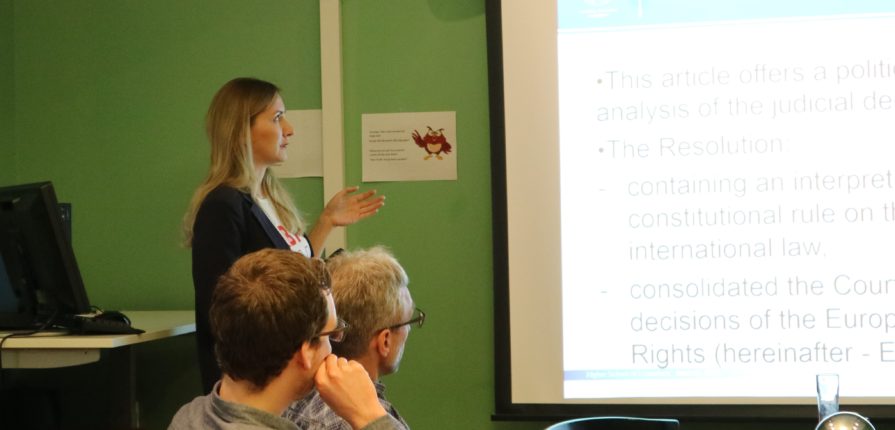Visiting scholar Olga Komshukova presented on the human rights and children’s right situation in Russia.
Protection of the child’s rights is declared as one of the priority goals in the field of social policy in Russia. However, the current situation regarding the protection of children’s rights is far from the intended goals.
Olga Komshukova is a PhD fellow at the National Research University Higher School of Economics in Moscow, one of the leading universities in Russia. She guested the Centre as a visiting scholar in June 2019 and gave a lecture on the legitimacy and judicial protection of human rights and children’s rights in Russia.
The politicization of child protection
The Russian Federation was ranked as number 84 of 181 countries on the Kids Right Index in 2019, with a particularly low score on the domain “Enabling Environment for Child Rights”. This is related to variables such as non-discrimination, the best interest of the child, respect for the views of the child/child participation and enabling legislation.
At the lecture, Komshukova explained some of the challenges related to the promotion of children’s rights in Russia.
– The declared priority is the interests of the child. However, the actual priority is the mothers’ interests and the promotion of “traditional” family values.
– The child protection system is used as a political instrument, for the purposes of integration into the international system and create an image of a law-oriented state. As an example of this policy is a case of “Dima Yakovlev’s law”. This law forbids adoption for US citizens, but as additional norms provide several limitations for NGO- activities in Russia.
Refusal to enforce the European Court of Human Rights decisions
Komshukova pointed out that the Constitutional Court of Russia disagrees with a number of decisions of the ECtHR, and since July 2015 allows Russian authorities not to execute them.
– It is possible to refuse to execute an ECtHR decision by a decision of the Constitutional Court of Russia if the ECtHR decision contradicts the Russian Constitution. This complicates the situation with the judicial protection of human rights, and in particular, children’s rights.
The presentation slides from Olga Komshukova’s presentation is available below. The title of her PhD project is “Legitimation Mechanisms of the Decisions of the Constitutional Court of the Russian Federation”.

